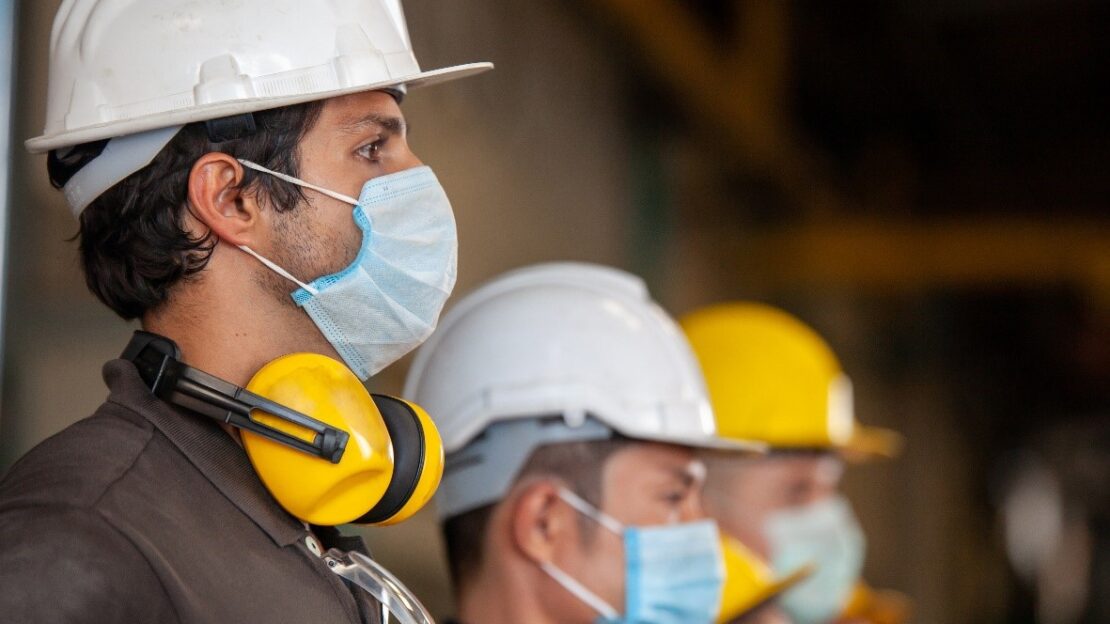INTRODUCTION
New VAT rules are due to come into effect from March 2021 which will impact on accounting for VAT for transactions in the construction sector. The new rules are called “the domestic reverse charge for supplies of building and construction services”.
The new “reverse charge” system of VAT accounting will affect sub- contractors supplying their services to other contractors in the construction sector with a wide range of services in the building trade, primarily those activities covered by the construction industry (CIS) payment rules. Note that normal VAT invoices will continue to be issued to domestic customers and other “end users” as defined under the scheme.
Under the new rules, supplies of standard or reduced-rated building services between VAT-registered businesses in the supply chain will not be invoiced in the normal way. Under the new reverse charge system, the sub-contractor will not charge VAT on their invoice to the contractor for whom they are working and will not account for output VAT, although they will identify the rate and amount of VAT due and notify their customer that the VAT must be accounted for by them on their VAT return. The sub-contractor will there be paid only the net value of the work done without the VAT.
The contractor receiving supplies from the sub-contractor will be obliged to enter the VAT identified on their sub-contractor’s invoice in box 1 of their VAT return as well as claiming this back in box 4 of the return.
This is intended to ensure that VAT is correctly accounted for on supplies by sub-contractors, some of whom were allegedly fraudulent businesses not paying over the VAT charged to HMRC.
HOW TO PREPARE FOR THE CHANGES
It is important to make sure your accounting systems and software can deal with the reverse charge. You should also consider whether the change will impact your cash flow and most importantly – make sure all your staff who are responsible for VAT accounting are familiar with the reverse charge and how it will work.
WHO DOES THE REVERSE CHAGRE APPLY TO?
Typically it will affect sub-contractors supplying their services to other contractors in the construction sector on a supply and fit or labour only basis (but not to labour agencies).
This applies if the services provided are:
- standard rated or reduced rated, and
- within the scope of CIS.
USING THE REVERSE CHARGE: SUPPLIERS
You must use the reverse charge from 1 March 2021, if you are VAT registered in the UK, supply building and construction industry services and:
- your customer is registered for VAT in the UK.
- payment for the supply is reported within the Construction Industry Scheme (CIS).
- the services you supply are standard or reduced rated.
- you are not an employment business supplying either staff or workers, or both.
- your customer has not given written confirmation that they are an end user or intermediary supplier.
The practical steps you will need to take are:
- Check if your customer has a valid VAT number.
- Check your customer’s CIS registration.
- Review your contracts to decide if the reverse charge will apply and tell your customers.
- Ask your customer to confirm whether they are an end user or intermediary supplier.
- Make arrangements to alter your invoicing to identify the rate and amount of VAT due but not to charge it to your customer, also ensuring that a narrative appears on the invoice instructing the customer to declare the VAT on their VAT return.
- Find out how to record the reverse chargeable transactions in your accounts.
- Analyse the impact of the new rules on your cash flow and consider applying for monthly VAT returns.
USING THE REVERSE CHARGE: CUSTOMERS
You must account for the reverse charge from 1 March 2021, if you are VAT registered in the UK, receive supplies of building and construction industry services and:
- your supplier is registered for VAT in the UK.
- payment for the supply is reported within the Construction Industry Scheme (CIS).
- the services you receive are standard or reduced rated.
- your supplier is not an employment business supplying either staff or workers, or both.
- you are not an end user or intermediary supplier who has notified your suppliers of that fact.
The practical steps you will need to take are:
- Check if your supplier has a valid VAT number.
- Check your supplier’s CIS registration.
- Review your contracts to decide if the reverse charge will apply and tell your suppliers you will not accept normal VAT invoices.
- Make arrangements to account on your VAT returns for the VAT identified as due to HMRC on your suppliers’ invoices.
- Ensure that you refuse any normal VAT invoice issued to you by a sub-contractor where the reverse charge should be applied.
- Make arrangements to pay only the net value of the work to your sub-contractors.
- Find out how to account for the reverse charge transactions in your accounts.
BUSINESSES THAT ARE BOTH SUPPLIERS AND CUSTOMERS
Many businesses in the construction sector are both suppliers and customers, who will be affected in relation to purchases and sales. The above practical steps will need to be taken in respect of both.
SUMMARY
If you are a sub-contractor you should also be aware that your customers will no longer be paying you VAT, which will reduce the amount of money coming into your business. So you should consider and plan for the impact of this on your day-to-day cashflow. Please talk to us about projecting your cash flow forward so you can manage the change.
If you are a sub-contractor using the VAT flat rate scheme, it may be beneficial to leave that scheme as you may be entitled to a VAT refund on your expenses from 1 March 2021.
If you want to know more about how the VAT reverse charge interacts with self-billing and authenticated receipts please contact us.
If you are likely to be affected by these changes we can work with you to ensure you are ready for the new system when it starts. We are cloud accounting specialists and can recommend the right software to you comply with the new rules and advise on other changes to help you and your business.







